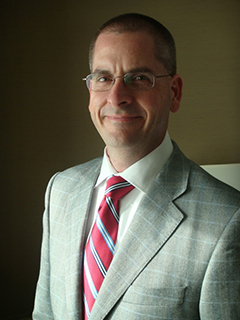
The landscape of graduate studies has changed over the years, as many graduates now seek jobs outside of the world of academia. On March 20, the Faculty of Arts will be leading a conference to discuss the future of the PhD, and to determine which changes need to be made to ensure graduates have the skills they require to succeed. We caught up with Associate Dean (Graduate Studies), Tom Spalding, to learn more about the changing climate, and the upcoming "Future of the PhD" conference.
Why are we examining Arts PhDs now?
Far more PhDs are produced than there are tenure-track academic positions. Canada, for example, produces about 6,000 PhDs per year, but there are only about 500 tenure-track academic positions, a much lower ratio than it was 20 years ago. This is happening because the university system has been greatly increasing the number of PhDs granted, while at the same time, universities have been moving away from hiring tenure-track professors.
How well do we prepare graduate students for jobs?
I would argue that our programs are, by and large, doing an excellent job in preparing PhD students for academic positions. This is what PhD programs were originally designed to do; we know how to do it, and do it well. The question is whether we can make sure that we are also doing an excellent job of preparing students for non-academic positions, given that so many of our students will go on to work in non-academic settings. Obviously, the flip side of this is that we do not make changes to PhD programs that end up damaging our ability to produce excellent candidates for academic jobs! We have to find some way forward that allows us to do both.
Do other fields of study have similar concerns?
It definitely is not limited to Arts. But the kinds of skills that are developed in some programs may have more obvious applications outside of academia-for example, a student who trains in chemistry to the PhD level will have developed many laboratory skills along the way that they can use in non-academic positions. Arts PhD students also develop many important and marketable skills in the course of doing their degrees, but the transition of those skills to the non-academic world is not as obvious. Understanding such skills, and ways we can develop them, is a major theme of this event.
What do you hope this conference will achieve?
The aims of the conference are to see where the strengths and weaknesses of the current system are, and how those match up with the changing world outside our walls, so that we can put our graduate students in the best possible positions when they graduate. I hope that this will kick start conversations around how we can design innovative and effective PhD programs that provide the skills and knowledge needed by our students, whether they go on to academic positions or not.
Future of the PhD in the Arts: Changing conditions for graduate education in the Humanities, Social Sciences, and Fine Arts takes place March 20th from 8:30 a.m. to 5 p.m. in Lister Centre. Anyone who would like to attend and contribute to the discussion is welcome and encouraged to contribute their ideas during the Q & A sessions after each speaker.
Visit http://artsphd.eventbrite.ca for more information and to RSVP.